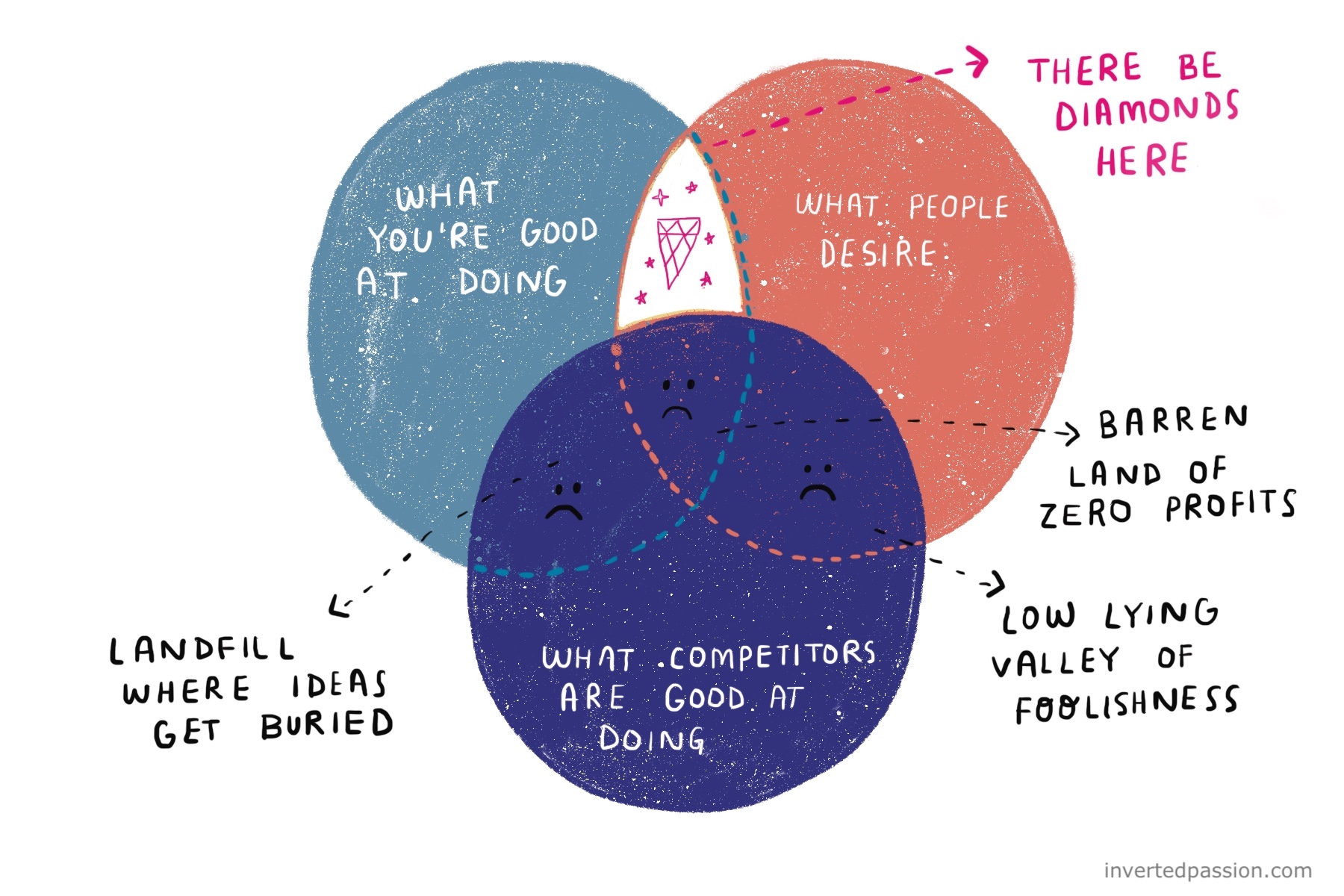You create value when you fulfill the unmet desires of people better than the alternatives they have (from competitors).

The idea that capitalism rewards things that are rare and valuable was proposed by Scott Adams in his essay on career advice where he recommended readers to master various skills until no one else has the mix that you have. That’s great advice.
The same applies to startups too as the only way you succeed in the market if you provide something that’s rare and valuable to customers. For example, Facebook succeeded because it fulfilled the desire of college students to know who from their class they could date (the valuable part). Before Facebook, social networks weren’t limited to a particular college and hence it was difficult to find people who are in the same class and are also looking for a relationship. By limiting signups initially to Harvard University, Facebook created a destination for dating. No other social network did this at that point in time (the rare part). Notice that had Facebook done only the valuable part or only the rare part, it would have not succeeded.
A fatal but common mistake that entrepreneurs make is misjudging what makes something valuable. Many entrepreneurs start companies around their own passions and desires. When it comes to startups, scratching your own itch has a big implicit assumption that other people also share the same itch. But that’s rarely the case. Most people in the world are not entrepreneurs and hence their priorities in life are likely to be very different than startup founders’ priorities.
If you look at the world through the lens of your own desires and frustrations, you’re likely to overestimate the number of people who share your worldview and how intensely they feel what you feel. If you don’t understand what is valuable to others, you will end up building products and services that nobody needs. To have a shot at success, build things that people (not you) want.
However, even if you end up correctly identifying a broadly shared desire or frustration, another costly mistake is to ignore how such desires or frustrations are currently being serviced. If existing alternatives are doing a good job in fulfilling such needs, your odds of success in the market get slimmer. (Why would customers switch from the tried and tested options to you, the unknown one?)
Hence, value creation requires identifying what specific desires of people others haven’t yet figured out. Doing this identification correctly is difficult. You may successfully identify what’s valuable or you may successfully identify what’s rare. But can you identify what’s rare and valuable?
In this mental model, notice that the circle around your capabilities is the only thing you are in control of. You can neither change people’s priorities, nor what types of competitors exist but you can definitely change who you are or what you can offer.
Using this mental model requires caution because entrepreneurs have a wonderful ability to justify their gut feelings. If you’re intent on deluding yourself, your mind can easily exaggerate differences of your products from competitors or misinterpret encouragement from friends as evidence of working on a valuable problem.
If you err, err on the side of being skeptical of working on a problem that’s rare and valuable because discovering that requires tremendous insight, iterations, and luck.
Remember: the valley of value creation lies at the intersection of what’s valuable and what’s rare.
This essay is part of my book on mental models for startup founders.
Join 200k followers
Follow @paraschopra